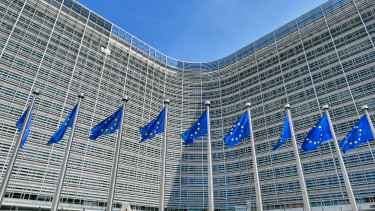Hungary to shut down borders - Orbán
Masses will be infected
Hungary has not declared a state of emergency since 1990. This is an extraordinary situation. We are facing an invisible and unknown enemy, the PM said in his parliamentary address before the start of the official agenda on Monday.
We stand the biggest chance if we work together. Fighting the coronavirus epidemic will be long and hard. Life in the following months will not be the same we got used to, warned Orbán.
Over the following months, those working in health care and law enforcement will have the most crucial jobs, he said, thanking the efforts they have made so far, and asking people to support them any way they can.
We'll enter a phase of mass infections and as there is no vaccine yet, we must cut the number of social contacts. That is why the special legal order was implemented and a no-entry policy was accepted for the citizens of four countries [China, South Korea, Iran, Italy and later Israel]. Indoor programmes with more than 100 attendees and outdoor events for audiences of over 500 people were also banned. Universities, colleges, schools, kindergartens and créches have all been closed, and remote learning will be the form of education until the ban is lifted.
New measures
- The borders of Hungary will be closed, only Hungarian citizens may enter.
- Events will be banned as of midnight.
- Apart from family gatherings, all community events should be put off.
- Sports events may be held only behind closed doors, if the organisers approve the event at all.
- Entertainment facilities, cinemas will be closed.
- Restaurants, cafeterias and shops may be open until 3 P.M., except for food stores, pharmacies and drugstores.
Orbán added that international consultations about the border closure are in progress.
The government is asking elderly citizens not to leave their homes, because they are in the gravest danger. Tending to the elderly is the obligation of local governments.
Economic consequences
The entire Hungarian economy will be in trouble but not all sectors at once. Some have already been hit, such as tourism and catering. Bártfai-Mager Andrea, minister without portfolio in charge of public assets, was asked to consult with the representatives of troubled sectors so that swift remedial steps can be taken. The PM also reminded that the global pandemic puts jobs at risk and the budget needs to be revised.
"We expect that the economy will soon come to a halt and it will need to be restarted, which will require government measures," he said in a video message posted on his Facebook page on Friday.
He also said he has already contacted central bank (MNB) Governor György Matolcsy because.
monetary policy tools are also necessary to manage the crisis in Hungary.
Interestingly enough, Matolcsy attended a meeting between Orbán and the heads of the ten action groups the PM set up on Friday. The PM expects the group leaders to report to him about the latest develoments in every 48 hours.
Reactions
Heads of the parliamentary parties called on the government to ease the burdens of citizens in relation to the epidemic. They recommended a prohibition of layoffs, wage compensation and supplementary payments should someone drop out of work. They also propose the suspension of loan repayments, support for employers to incentivise work from home, wage hike for employees in the public sector, the extension of the job search allowance, among other things.
Orbán’s remarks
There is unlimited budget funding available for protective measures, the PM said, adding that these resources may be allocated immediately.
The issue of protective gear for those working in the frontlines have been moved up on the list of priorities. Medical staff dropping out need to be replaced therefore their protection is of vital importance, said Orbán.
Those working in medical higher education have also been classified as health care workers. They may also be called in for duties. The same measure has already been put into effect for non-commissioned armed forces personnel.
He implored employers and employees to try to come to terms and make personal efforts to retain jobs.
The job protection action plan of the government does not agree with what the opposition parties have recommended. The cabinet does not think along the lines of supplementary payments. We should not consider how to pay compensation for those that drop out of work, but think about how to make sure no one drops out.
There should be measures that help keep people in their jobs.
If we want to pay employers the incomes of their employees, that’s austerity. But it will not be so. We will stimulate, support investments and keep people in their jobs. If additional budgetary resources are required, we’ll provide them, he added.
It does not seem to be good news that EU funds are re-allocated at the expense of Cohesion Funds, said Orbán. Let’s wait and see if they take away instead of giving.







